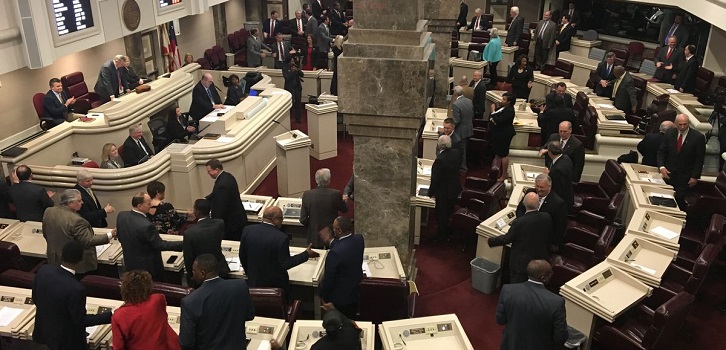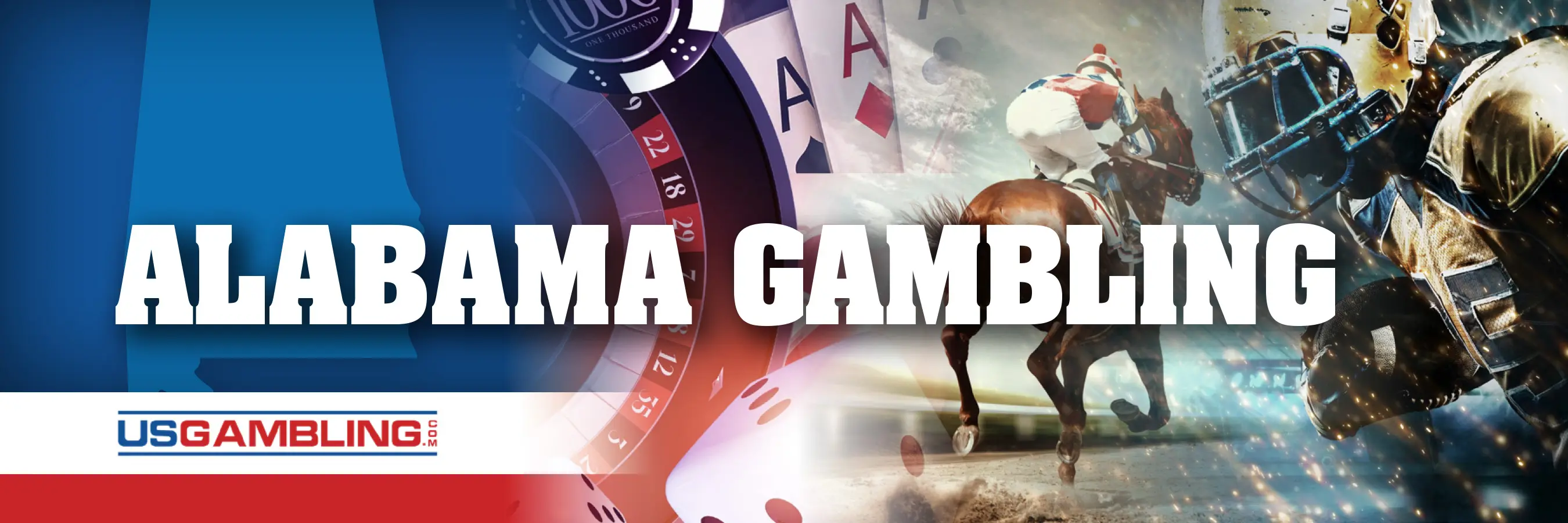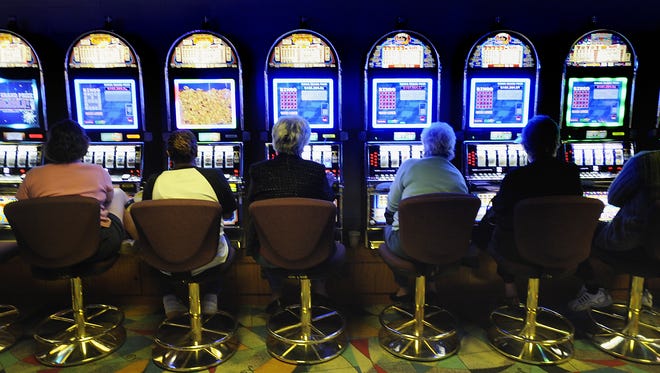Alabama Gambling Bill
Posted By admin On 03/08/22
The Alabama Senate passed a lottery bill Thursday, and now it’s headed to the Alabama House. But before you start itching for scratch-offs, there’re a few things about this game you need to. Alabama gambling bill gets debate, no vote. Officials and residents on Houston County in particular urged Marsh to amend the bill to allow gambling to go to the former Country Crossing site in. Alabama’s House of Representatives is to run the rule over a new bill that aims to legalize land-based and mobile sports wagering in the US state. Sponsored by Representative John Rogers, House Bill 336 is currently with the House committee on Economic Development and Tourism after being introduced late last week. Alabama Senate bill could bring two new tribal casinos and a state lottery The bill's sponsor, Senator Greg Albritton (photo), explained the two new properties would not be tribal land, and they would be subject to taxes. The bill would not allow other businesses to offer the casino games.
- Alabama
Does Alabama have a lottery? Not currently - Alabama is one of just six states that does not have a state lottery. The others are Alaska, Hawaii, Mississippi, Nevada, and Utah. These states are also not part of multi-state games like Powerball and Mega Millions.
Can you buy lottery tickets in Alabama?
If you live in Alabama, you can't buy lottery tickets, like Powerball or Mega Millions, within the state or online, according to the Multi-State Lottery Association, the group that manages the Powerball drawing.
However, Alabama residents do often travel across the border to buy lottery tickets in neighboring states, and lottery retailers near the border in Georgia, Florida, and Tennessee do a brisk business, especially when a big jackpot creates extra excitement.
If an Alabama resident won the lottery on a ticket bought in another state, they would be able to claim their prize, but they would still have to declare their winnings as income. A big prize would put the winner in Alabama's top six percent tax bracket. The winner would not pay state tax in the state where they bought the ticket.

Many argue that the money currently spent on lottery tickets in other states should be spent in Alabama instead, with revenue from a lottery going towards education, roads, and other good causes within the state.
Alabama resident Thomas Hawkins gets his Powerball tickets over the border in Florida, but wants Alabama to legalize multi-state lotteries too. 'I think it would help, especially with the General Fund,' he said.
So, could Alabama be the next state to get its own lottery?
Lottery bill passes Alabama Senate
The absence of a state lottery has not been for lack of trying on the part of some state lawmakers. In almost every session of the Alabama legislature, a lottery bill is introduced but subsequently fails.
Gambling is outlawed in the state's 1901 constitution, and the state has a history of religious opposition to gaming. However, that hasn't stopped all forms of betting in the state entirely.
As of May 2019, a bill to legalize a paper-based lottery is currently making its way through Alabama's legislature.
On April 25, the bill passed the Alabama Senate in a very tight result with no votes to spare. The bill needed 21 votes to pass, and that's exactly what it got, passing 21-12. 21 was the minimum number of votes required for the bill to pass because the legislation is a proposed constitutional amendment and therefore it needs three-fifths of the 35 senators to vote in favor.
The bill's sponsor, Rebublican state senator Greg Albritton, said he was “pleased, a little surprised, and grateful it’s over.” He said he had not been expecting the bill to pass, based on head-counts before the vote. “I came in fully anticipating this to be a very, very, close vote,” he admitted.
Alabama Gambling Bill
The bill is now on its way to the Alabama House, where it will also be subject to the same three-fifths majority requirement. If the House passes it, the bill will be put to Alabama voters in a statewide vote on March 3, 2020. Alabamians would have to give the constitutional change the green light before a lottery could be introduced.
What's in the lottery bill
The bill would enable a paper lottery, which means it would allow multi-state or intrastate games, like Powerball and Mega Millions, played with paper tickets and instant tickets.
“It’s a simple lottery,” Albritton said. “It gives people the right to vote as to whether to have a lottery or not. Straight paper lottery. That’s it.”
It would not allow any type of video lottery terminals, mobile- or internet-based video games, casino-style games, or slot machines.
The bill does not change the status of any type of gaming that is currently legal. An amendment was added that protected the bingo games played in some counties where pari-mutuel betting is already legal by excluding them from the definition of a video lottery terminal.
Alabama Sports Gambling Bill
Bill sparks intense debate
Debate in the Senate before the vote was heated. Supporters of a paper lottery say it is 'clean' and 'simple' and so has the best chance of passing.
However, critics argued that electronic machine gaming, which is especially popular with younger people, should be included, or the legislature would simply have to revisit the issue in the future.
Democrat Bobby Singleton, the Senate Minority Leader, voted against the bill, saying the lottery should be defined more broadly to raise more revenue and provide flexibility to incorporate changes in technology.
“I want us to be able to make sure that we do everything that we need to do so that we won’t have to come back in another constitutional amendment trying to amend it two years down the line,' he said. 'I think we need to really think this through, do a complete lottery that will grow and allow us to be able to get the maximum amount of dollars that we possibly can for the state.”
The bill also barely squeaked through its previous test, where it was approved by the Senate Tourism Committee on April 23 by a 6-5 vote.
The Tourism Committee did not consider a separate lottery proposal by Republican Sen. Jim McClendon that would have allowed video lottery terminals in some counties. Republican Sen. Del Marsh said he thought Albritton's bill, of which he is the co-sponsor, had a better chance of being passed because it is simpler.
“What I’m trying to do is give a vehicle that has a chance of getting to the people for a vote,” Marsh explained. “Because I do believe the majority of people in Alabama want to vote on a lottery bill.”
Still other lawmakers objected to a lottery in principle, in line with Alabama's history of religious opposition to gambling.
The Senate vote was not strictly along party lines, with five Democrats and seven Republicans voting against the bill.
What would lottery money be used for?

Sen. Albritton's bill estimates a paper lottery would raise $167 million a year after prizes and expenses are paid out. A 2015 Auburn University Montgomery study that was commissioned by the bill's co-sponsor Sen. Marsh was more optimistic, projecting that a state lottery would raise $330 million a year.
After the costs of operating the lottery were covered, leftover proceeds would go to the Alabama Trust Fund to repay $184 million that it paid to the State General Fund to balance the state budget in 2013, 2014 and 2015.
After those funds are repaid, half the money would go to the General Fund, and the other half would initially go into a new reserve fund until it reaches the level of 10 percent of the General Fund budget. The monies would then stop being funelled into the reserve fund, and instead start to flow into the Alabama Trust Fund.
How best to spend the money from any Alabama lottery has been a long-standing subject of debate.
The state has entrenched budget problems, which led to the substantial transfer of money from the Alabama Trust Fund to the General Fund in the first place. Many argue that until these core issues of state finance are resolved, the lottery will simply be a Band-Aid that conceals the need for more fundamental changes in the way the state raises and spends money.
In a sign of the dire state of Alabama's budget, Sen. McClendon, who also sponsored the last major bill to start a lottery in 2016, said, “my motivation is not to solve fiscal problems in Alabama. There’s not enough money in the universe.”

Critics also contend that the bill does not tackle the state's patchwork quilt of existing gambling regulations, which should be reformed. The Poarch Band of Creek Indians are federally recognized and operate casinos in Atmore, Montgomery, and Wetumpka under federal law, which the state does not earn direct tax dollars from, while other forms of gaming, like pari-mutuel betting, are already legal.
If the state is going to allow gambling, critics say, it should be those types that are going to earn the most and keep money from being spent out-of-state. They point to the bill's ban on mobile- and web-based games, which appeal to younger people, as evidence of its limited fundraising potential.
Another critique is that, unlike many states, the Alabama lottery bill does not specifically earmark money for initiatives that can bring about positive generational change. For example, in neighboring Georgia, money is put towards a college scholarship fund.
What's next for a lottery in Alabama?
The Albritton bill has survived this far, but its success is by no means guaranteed. Legislation to authorize a lottery must confront a thorny group of constitutional, economic and political hurdles.
Even if the House approves the bill, there is doubt about which way Alabamians would vote. A lottery was previously put to a public vote in 1999, supported by the then-governor Don Siegelman, and voters rejected it by 54 percent to 46 percent.
Another divisive issue involves access to gaming machines. The Alabama Legislature seemed about to approve McClendon's lottery bill in 2016, but just as now, the bill only approved a paper lottery. Ultimately, this led to its failure.
There is tension between two groups that run gaming facilities in the state. The Poarch Band run casinos in Atmore, Montgomery, and Wetumpka under federal law, while Alabama's four dog tracks operate under state law.
Senate Democrats have generally been supportive of lotteries, but in 2016, they argued that a paper lottery would give the Poarch Band a monopoly on Virtual Lottery Terminals (VLTs), a gaming machine that the dog tracks would not have had access to under state law. The GreeneTrack dog track in Greene County is in Sen. Singleton's district, and his concerns about the dog tracks being unable to obtain VLTs led to him voting against the bill.
Singleton was also concerned because federal law considers lotteries Class III gaming, a designation that includes slot machines and table games. Singleton said the Poarch Band would be able to install the machines. “The reality is a lottery is a Class III game,” he said. “If we allow Class III gaming they will go full casino, as opposed to bingo.”
Robert McGhee, director of government relations for the Poarch Band of Creek Indians, said that while he hadn’t looked at the current bill in detail, he believed it would give “the people of Alabama what they want” - the chance to vote on a lottery. “The point is you still have to have a negotiated compact with the state,” he said. “We do not operate outside of a compact.”
Sen. Albritton’s district includes Atmore, where the Poarch Band operate the Wind Creek Casino. “I speak to my constituents, the Poarch Band included, about this particular bill,” he said. “I haven’t gotten a yes or a no.”
Governor Kay Ivey, for one, is choosing her words carefully. 'I certainly support the people of Alabama having a chance to vote,' she said. 'But there's also a principle of public policy that says, never attach an uncertain source of funds to an essential need of the state.'
The numbers involved are certainly enormous. U.S. lottery revenue in 2014 was $70 billion, of which Powerball alone accounted for $4.81 billion. Compare that to the combined gross revenue for professional football, baseball and basketball, which generated $23.6 billion. So one thing seems certain - even if this bill does not pass, expect a new attempt to introduce a lottery in Alabama before too long.